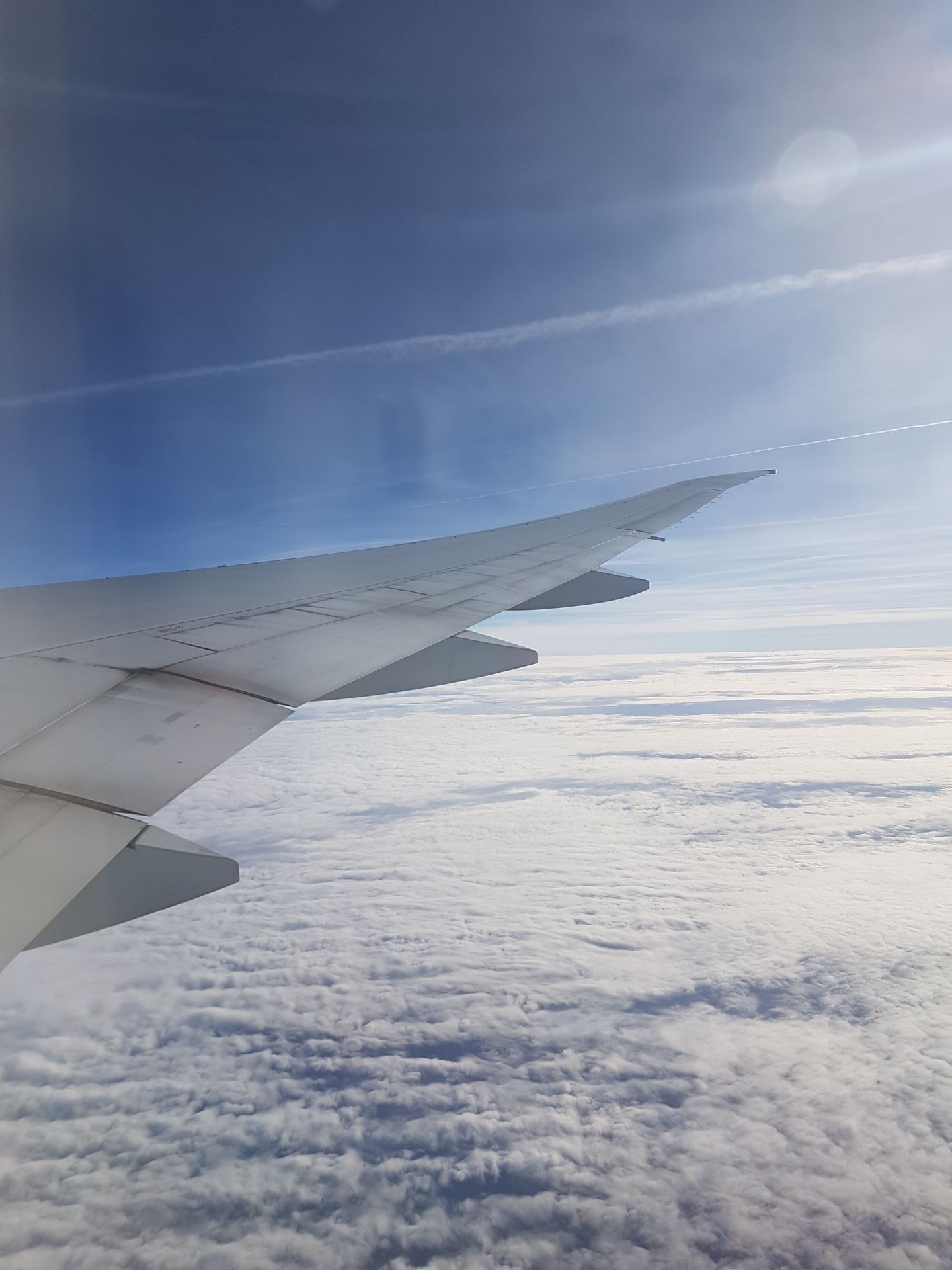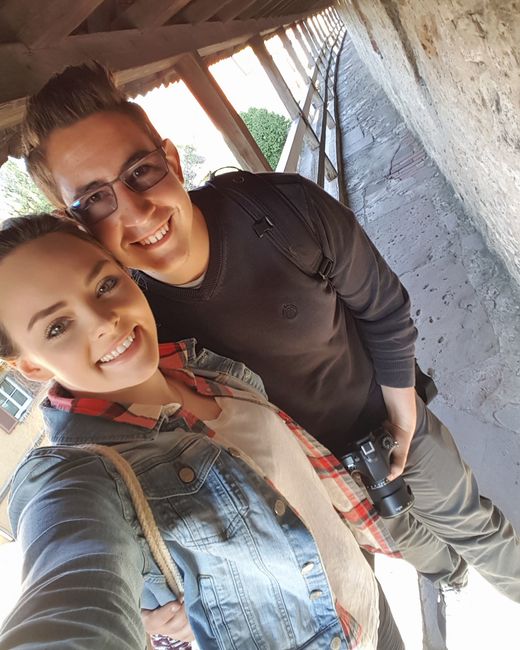23/01/2018 - Kiwis and German Food
प्रकाशित: 12.02.2018
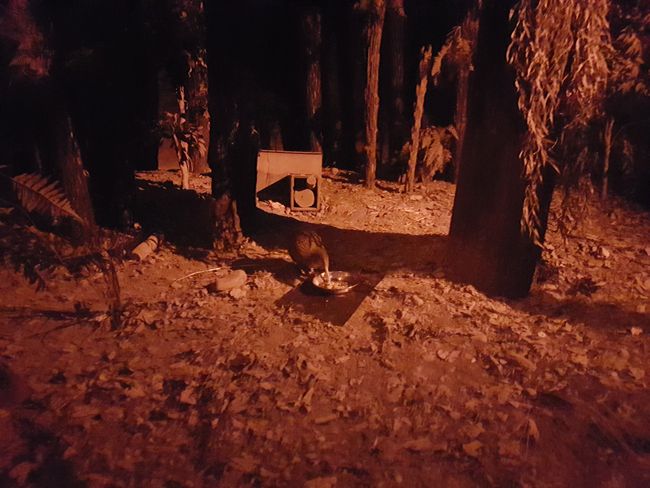
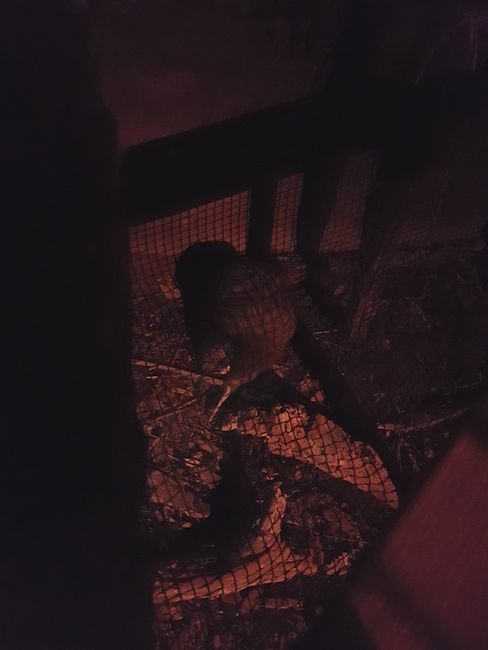
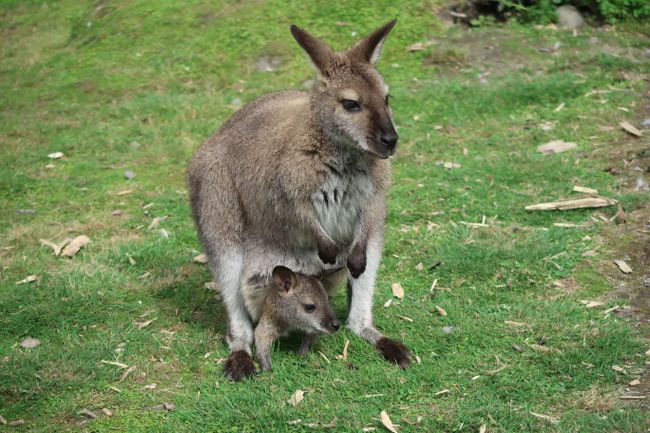
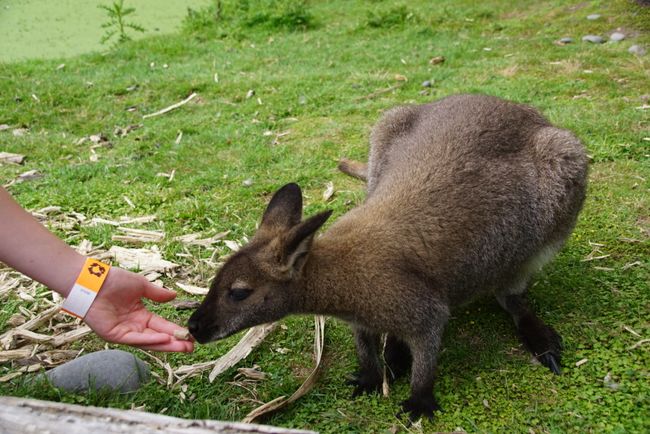
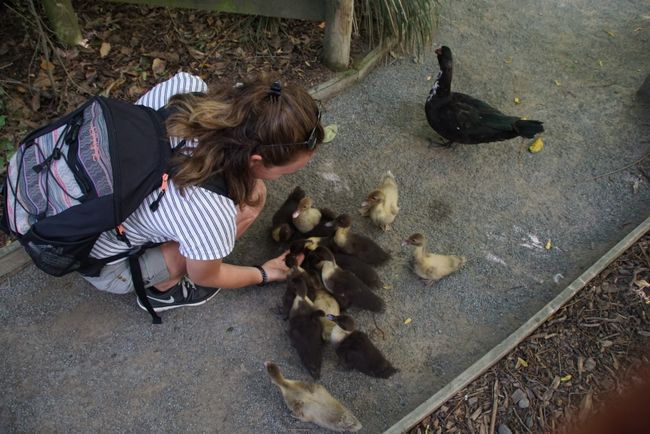
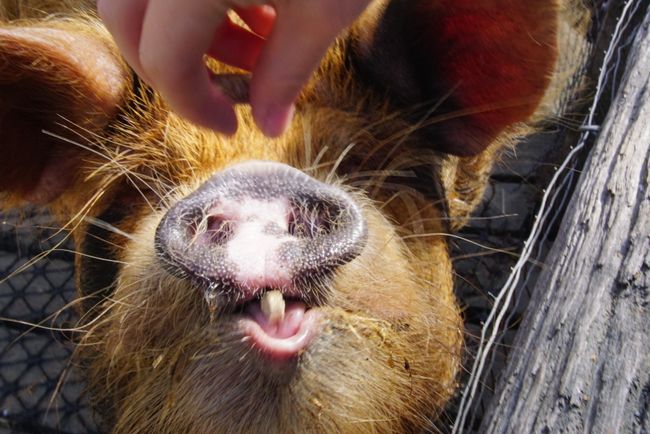
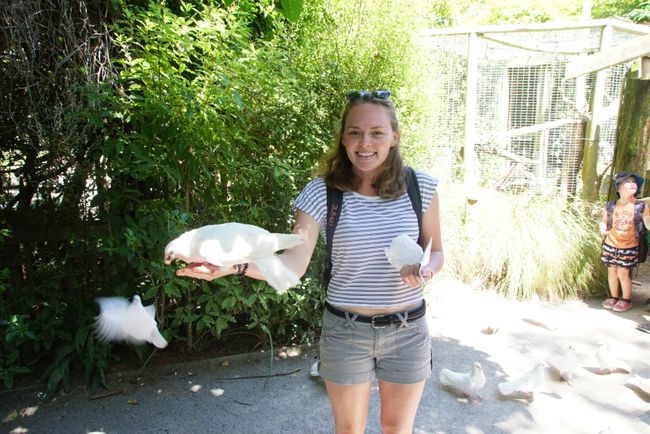
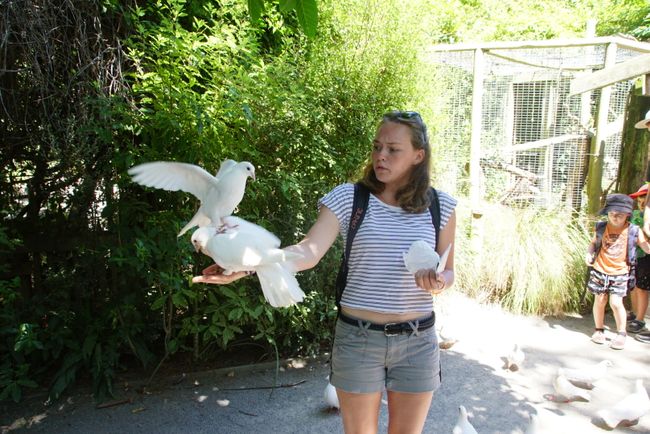
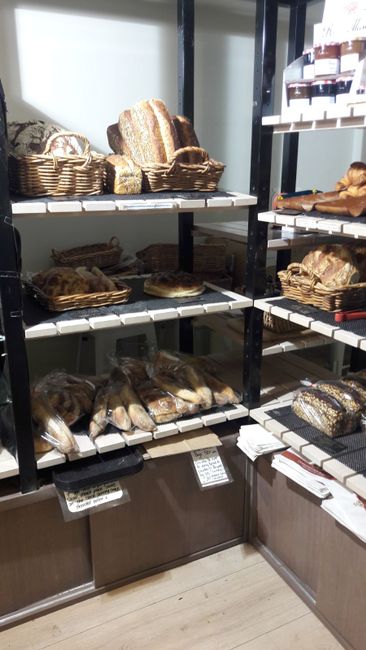
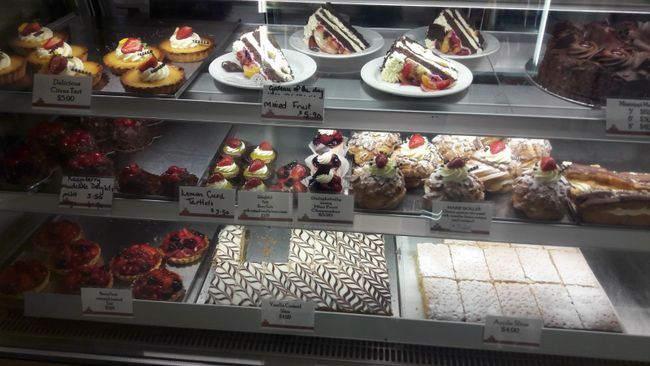
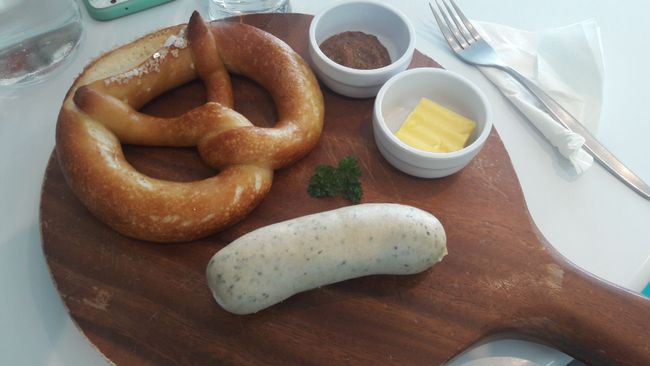
समाचारपत्रस्य सदस्यतां गृहाण
Today it was time for some wildlife again. A visit to the 'Willowbank Wildlife Reserve' was on the agenda. The zoo advertises with the 'Home of the Big 5' - including the 'Kaka' (a rare bush parrot), the 'Tuatara' (a reptile from times past), the 'Kea' (a clever mountain parrot), the 'Takahe' (believed to be extinct) and of course the national symbol of New Zealand, the 'Kiwi'.
We bought '2 for 1 Tickets' through the website 'book.me' and arrived at the zoo at 09:30 AM. We bought two bags of animal feed and were handed a park map. A walk leads visitors past every enclosure and area.
The walk begins with a beautifully landscaped footbridge. Around you swim eels and ducks. After the large deer enclosure came the first highlight. It was a large 'petting zoo', where some wallabies hop freely. One of them was particularly close to the pathway. We approached it very slowly. We sat down at the edge of the pathway, marked with large stones. The wallaby was just picking up the food lying on the ground. At first, Tobi tried to feed the wallaby by hand, but it showed no interest - because there were still some food pads on the ground. We switched roles and I sat down next to the wallaby and actually - it ate out of my hand! We had never been this close to these animals before, and we never believed they would actually eat out of our hands.
We continued past small monkeys, different species of parrots, otters, and lemurs. Before we followed the path to the farm animals, a large family of ducks crossed our path. The mama duck and her ducklings were very trusting. So I put some food pads in my hand and crouched down. It didn't take long and I was surrounded by many small, fluffy creatures. They eagerly ate out of my hand. Of course, I couldn't stop with just one time, I put two, three or even four times some food pads in my hand and enjoyed that they ate out of my hand. They didn't hurt at all, on the contrary - they were greedy and snappy, but it tickled more than it hurt. The mama duck always had her eye on me, but she herself was not averse to the food pads and was happy when she got something. When we could finally say goodbye to this sweet family, we continued to the farm animals. Here you can find animals that you usually encounter on a farm: horses, cows, sheep, goats, chickens ... and domestic pigs. They have a very special technique for feeding them. Either you do it like the boar and open your entire mouth or like the sow and form a small hole with your snout, into which the food pad should be thrown. We had a lot of fun with that.
After the outdoor enclosure of the keas, we went to the most famous animal of New Zealand. The Willowbank Zoo has a nocturnal enclosure where the kiwis are awake during the day for the visitors. At that time, five kiwis lived in the spacious enclosure. After our eyes had adjusted to the darkness, we walked through the entire building. We took breaks again and again to possibly perceive a rustling or something similar. But at first, we were not really successful. Only right at the end, before we go out again, did we discover a small, brown, flightless bird. As almost always, it was just searching for food. It stuck its long beak into the ground over and over again. Several small spots with red light were set up in the nocturnal animal house. This made it possible to see it very well if it didn't hide in a dark corner. But suddenly it got very loud! A 'kiwi call'! For the very first time, we heard a kiwi call. It didn't last long, but to have witnessed this sound was another highlight of our trip to New Zealand! We walked back to the beginning of the house and discovered the kiwi that had just called. It didn't take long until we saw another one. So there were already three kiwis that we discovered today. We watched the cute, almost ball-shaped flightless birds for a while. But who is that over there? One more? Yes, indeed, another fourth kiwi could be seen. It was just eating because the animal keeper passed by and put round containers with their food in the ground. The nocturnal animal house became very loud again - another kiwi call. Incredible! Hard to describe how this call sounds - simply unique. We were very happy and it was very hard for us to say goodbye. Because we have never seen them this well thanks to the red light - and to listen to two kiwi calls in such a short time was unthinkable for us.
When we said goodbye to our new favorite animals, the tour was soon coming to an end. We only passed by smaller bird species and fish swimming in the pond. But just before reaching the last meters, we met many white pigeons that we had already seen several times on the tour - but here they had their place. We used this opportunity to get rid of our leftovers. Because only the tiniest crumbs were left. But throwing them on the ground would have been too boring. So we put the leftovers in our hands and it didn't take long for the first pigeon to sit on our hand.
Finally, we have to say that this zoo is operated with a lot of love. The animals have spacious enclosures and the tour is well designed. In New Zealand, you have the opportunity to get very close to the animals, and this has the potential for unforgettable memories.
The morning passed and hunger caught up with us. In a district called Papanui, located a bit outside the city, you'll find the award-winning bakery 'Copenhagen Bakery'. We were amazed when we arrived. In addition to all the sourdough breads, there were also plenty of cakes and sweet pastries behind the counter. We bought a whole wheat bread for breakfast the next day and a ciabatta for dinner. - Both breads were very delicious and could hold their own against German craftsmanship. :)
Since our appetite had only grown after visiting the bakery, we headed straight to a café. The 'Café Berlin' in Christchurch is very popular among German backpackers and emigrants. It sells German products such as Ritter Sport chocolate, gingerbread, or Dr. Oetker pudding powder. But initially, we longed for a German lunch. So we had pretzels with weißwurst sausage and sweet mustard, and Leberkäs with bread. It tasted really good. We felt a touch of home.
In Germany, we often took these down-to-earth dishes for granted. We had to travel to the other side of the world to learn to appreciate German home cooking. Nothing beats a warm, homemade bread from the bakery.
There were also other German backpackers waiting for a German lunch. Besides lunch, we only bought a few Frankfurt sausages to take away.
After the delicious meal at the café, we filled up our storage boxes at PaknSave. Because tomorrow our journey continues to a beautiful peninsula.
समाचारपत्रस्य सदस्यतां गृहाण
उत्तरम् (1)
Wolfgang
Wieder mal schöne Bilder, ich habe sie mir wieder runtergezogen auf USB-Stick und werde sie am TV mir schön grooooß ansehen. LG
यात्राप्रतिवेदनानि न्यूजीलैण्ड्
